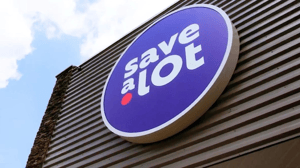1-on-1 With FMI’s SVP Mark Baum1-on-1 With FMI’s SVP Mark Baum
WGB’s August Endcap guest discusses how the association is redefining itself for a new era, among other topics. WGB’s August Endcap guest discusses how the association is redefining itself for a new era, the implications for retailers of more mindful consumers and what he deems to be the biggest misconception about the grocery business.
August 3, 2018

Mark Baum is SVP of industry relations and chief collaboration officer for the Food Marketing Institute (FMI).
Welcome to Endcap, Mark. Let’s begin by asking how is FMI redefining itself amid a rapid-fire series of change that shows no signs of abatement?
MB: It begins with our strategic planning process, which is our blueprint for the future that we continue to define and redefine. The pace of change has accelerated exponentially, as has how we look at the future, and how we activate and implement our strategic plan, to better serve our members and all of the other industry stakeholders internally and externally. We’ve also just completed a project to identify the key emerging issues that are impacting food retailing over the next several years, which in no particular order, are the changing consumer; the changing retail marketplace; the implications of emerging technology for the future of the workforce and labor; and the future of food production in an era of globalization and localization occurring simultaneously.
What is the biggest challenge in understanding FMI's member needs?
MB: To best understand our members’ needs, we see our value chain as circular in that it begins and ends with the consumer. Our primary vehicle to understand the shift in consumers’ needs and wants is through our shopper trends research, which equips us to better understand where consumers are going while helping our members address and understand how they desire to shop. And increasingly, it means that they can eat well—which doesn’t just apply to food and nutrition, which is still a critically important criteria, as is price, taste and convenience—but health and wellness and lifestyles, which are all very important. But the long-term impact of product safety, social issues—be it environmental or social issues regarding things like animal welfare, workers’ rights and overall sustainability practices—are also really, really important. So more mindful consumers mean our members must also be more mindful, which means we need to do a better job of providing products, services and advocacy that address those needs. Another thing we rely heavily on is our annual Speaks survey, which is entirely member-oriented and gives us a chance to track needs from year to year so we can adjust in our offerings as needs dictate.
The evolutionary changes are indeed staggering. Accordingly, I’m compelled to pose the unimaginative yet compulsory “probing” question: What do you envision FMI’s evolution will look like in 5 years?
MB: Parenthetically, I’ll note that those who look too deeply into their crystal balls wind up eating a lot of glass. But when I think about it in terms of strategy and the marketplace, five is the new 50, because in five years from now, so much is going to happen. But I’ll say two things on that: Given the acceleration of change in our industry, we use a staggered process that begins with our strategic plan to look up and out over the horizon, to consider what our overarching goals are going to be, and what our key deliverables will look like. We use the plan in such a way that we have a five-year vision for FMI’s role in the industry, and then we kind of dial it back a little bit to maybe three years, to think about the strategy itself, and the member value proposition.
The second thing is, at our core, two things will remain: first, a relentless focus on the consumer and the evolution of consumers’ wants, needs, desires and demands that we need to deliver on. No matter how far out we look, they will be the fulcrum upon which everything happens. Second, while we will always be the voice of food retail, over the next five years, as the industry continues to consolidate and integrate, I think our voice will broaden to be more representative of the broader food industry. Ultimately, we’re going to all have to stick together or we’re going to wind up hanging separately.
You were quoted as saying, “Food retailers are inherently shopper advocates.” While it’s certainly something we agree with, consumer activists have been known to feel otherwise. What do you feel is the biggest misconception about the grocery business that really ticks you off?
MB: The U.S. food industry’s story is so great, yet it’s often blown out of context with erroneous attacks. But our consumer research shows that [Americans] absolutely believe that their primary food stores are trusted advocates for education, information and product selection to help them make better choices for themselves and their families. I don’t think that always comes across very well. More broadly, my pet peeve relates to misconceptions about FMI’s core mantra, which is: When it comes to feeding families and enriching lives, we can deliver food from farm to fork for less than 10 cents on after-tax dollars on a capita basis. Our food industry is the envy of the world; it’s efficient, affordable and accessible and offers great variety. There’s also a presumption that that product offers quality and will be safe when the consumer brings it home. That’s an especially great story to tell, and it also doesn’t come across all the time.
Do you ever slip and use the term “food brokers?”
MB: I love the reference to my history here, which includes my past life helming the [long-defunct] National Food Brokers’ Association and its successor, the Association of Sales and Marketing Companies. But yes, I admit to occasionally lapsing and using the term “food broker.”
How many grocery stores do you reckon you’ve visited in your professional career?
MB: Thousands. Being a part of this great industry for almost four decades now, I’ve visited retailers all over the world, on virtually every continent except Antarctic.
Lightning Round
Which words or phrases do you most overuse?
“Food is a tactile experience.”
What’s the last book you read?
“The Bonanza King” by Gregory Crouch.
Name one person you admire and tell us why in one sentence.
My wife, Cathy, because she is talented and tireless, patient and persevering, strong and sagacious.
What is your favorite journey?
Generally speaking, to extreme places in the natural world.
What is your personal motto?
Get outside, there’s no place like it!
What is your present state of mind?
To follow my bliss.
About the Author
You May Also Like






